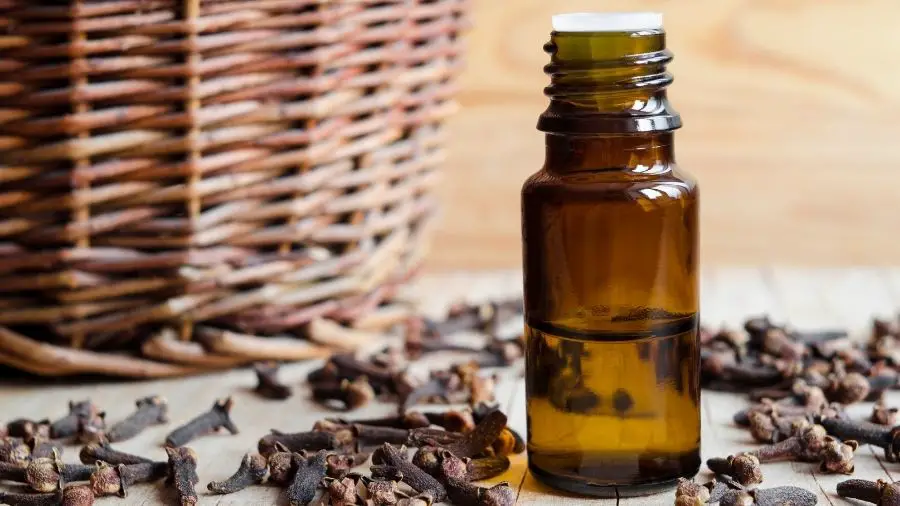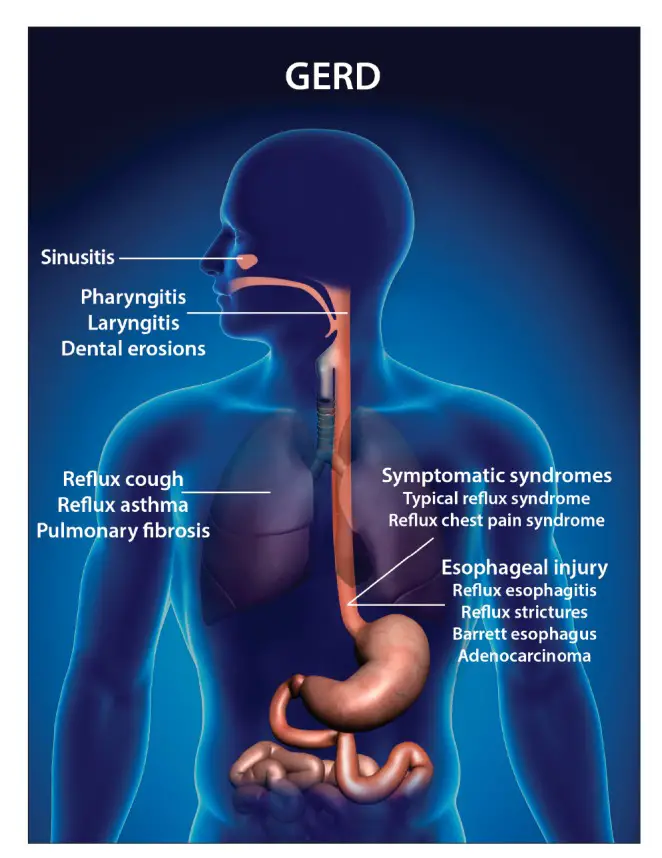What Essential Oil Is Best For The Lungs? 9 Great Options
Everyone wants to feel calm and healthy, whether they have an underlying condition like asthma or not. And we all want to breathe a little easier, which makes many people look to essential oils.
The best essential oils for the lungs are those that are shown to help treat upper respiratory infection and reduce inflammation of the airways. They also help relieve asthma and COPD symptoms, making them great choices for anyone looking to breathe better. The 10 best are:
- Eucalyptus
- Peppermint
- Lemon
- Lavender
- Rosemary
- Ginger
- Clove
- Chamomile
- Tea Tree
If you have asthma like I do, then you know what it’s like to struggle to breathe. Thankfully, essential oils are just one of many natural tools you can use to alleviate your symptoms (see how I treat my asthma naturally here). Let’s dive into the absolute best ones for your lungs – along with a few warnings.
Anti-Inflammatory Essential Oils For Asthma & The Lungs: About This List
If you have asthma, you may be wary of essential oils, because so many people overexaggerate their effects to make a quick sale. It’s easy to want a quick fix, but the essential oils on this list are not a quick fix. That’s because there are no quick fixes for asthma – just healthy choices you can make daily to counteract your worst symptoms (see how I was able to relieve all my worst asthma symptoms here).
That said, just because essential oils aren’t a cure-all, and just because they can’t replace your medicine, that doesn’t mean you can’t experiment to see if they help you breathe better or feel better. When I look at essential oils for asthma, I look for ones with anti-inflammatory, antiseptic and/or bronchodilating properties, because these seem to be the most likely to help me breathe better.
In fact, according to this 2015 study, “oils with a high phenol content, for instance thyme and clove, have antiseptic properties. Because of their wide‐ranging and complex effects, e.g. antibacterial, antiviral, anti‐inflammatory, mucolytic, bronchodilator, etc., they can be used as valuable materials in the treatment of different respiratory tract diseases.”
There are some things to keep in mind when using essential oils to treat the lungs, which we’ll cover below. First, let’s dive into the best essential oils for the lungs, and what makes them so effective. You’ll find that many of these have been used for centuries, and that they have a whole host of other health benefits as well.
1. Eucalyptus Essential Oil
Eucalyptus oil is usually the first you’ll see on any lists for essential oil for lung health, and with good reason. It’s been used for thousands of years to treat colds and chest problems, and it’s what you’ll find in a lot of over-the-counter vapors and chest rubs (source).
According to the Lung Institute, eucalyptus is a decongestant and an expectorant (meaning it can help loosen mucus so you can cough it up more easily). And it can also help people with COPD create a stronger immune system.
Plus, this study reports that eucalyptus use is beneficial as “long-term therapy in the prevention of COPD-exacerbations and to improve asthma control.”
And eucalyptus oil just has a pleasant scent, along with many other health benefits, making this a really nice option for anyone looking to reduce stress and improve their lung health.
Note that children should not use eucalyptus oil (source).
2. Peppermint Essential Oil
Peppermint essential oil can work as a decongestant, opening up nasal passages, making it great for asthma and other respiratory issues (like cold, flu and COPD). It is also an expectorant that can help loosen up mucus (source).
Peppermint oil also has a very pleasant aroma, as well several other health benefits. For example, it is often used to help ease nausea, indigestion and irritable bowel syndrome.
3. Lemon Essential Oil
Lemon oil is another essential oil that may be beneficial for treating asthma and the lungs. It can reduce pain (so common with asthma) and help promote calm (and anxiety is so common with asthma). More importantly, it may help you relax the muscles in your throat, soothing your throat (source).
Lemon is also a beautifully refreshing scent, so it is often paired with other essential oils.
If you have asthma and like the smell of eucalyptus, peppermint and lemon, you might enjoy the doTERRA Breathe Essential Oil Respiratory Blend (find it on Amazon here). It’s a popular blend that also contains laurel leaf, melaleuca leaf, cardamom seed, ravintsara leaf, and ravensara leaf essential oils. It has a refreshing aroma that is cooling and invigorating. It’s great at bedtime, too.
4. Lavender Essential Oil
Lavender has become popular for treating asthma and breathing difficulties, ever since an animal study in 2014 found that it might “be useful as an alternative medicine for bronchial asthma.” This is because lavender oil seems to reduce inflammation caused by allergies and asthma (source).
Lavender is another beautifully smelling essential oil that is often linked to improved sleep. So this calming essential oil might be good to include in your evening rituals.
5. Rosemary Essential Oil
Rosemary is a plant rich in antioxidants that has been used for centuries to treat respiratory disorders. Rosemary essential oil is often touted for its benefits for the lungs. One study found that it improved cough, sputum production and wheezing in a group of asthma patients, making it a promising treatment for resistant asthma. Another study found that rosemary has “therapeutic potential in treatment or prevention of bronchial asthma.”
This same study also found that rosemary may help inflammatory diseases. And since asthma is caused by inflammation of the airways, anyone looking to breathe better should try to reduce inflammation.
6. Ginger Essential Oil
Ginger is another natural remedy for respiratory issues that has been around for centuries, making ginger essential oil a nice option for anyone looking to treat the lungs. A study from 2019 confirmed that ginger can soothe sore throats and ease congestion. And most important for lung health, it is also effective at preventing inflammation in the respiratory system.
Specifically, modern research has confirmed that ginger is effective at preventing colds, sore throat, laryngitis, congestion and inflammation of the mucosal layer. It has been confirmed to help prevent respiratory disease and decrease asthmatics symptoms.
It’s one of the reasons I drink ginger tea to help treat my asthma (see the best teas for asthma and the lungs here). And it’s certainly a reason to try ginger essential oil if you’re exploring essential oils for the lungs. DoTERRA also makes a nice ginger essential oil that you can find on Amazon here.
7. Clove Essential Oil
Clove essential oil is another popular essential oil for lung health, especially for treating asthma, bronchitis and other respiratory conditions. It is anti-inflammatory, and, like many of the oils on this list, it has a cooling, soothing effect. In fact, some call it one of the most effective essential oils for asthma (source).
8. Chamomile Essential Oil
Chamomile is a flower that has lots of benefits for the lungs. It’s why it makes a great tea (learn more about chamomile tea here). And it’s why it makes a great essential oil for the lungs.
First, chamomile is anti-inflammatory, and like we’ve covered extensively, controlling inflammation is crucial to lung health (and your health in general).
Second, studies show that chamomile can have a more direct impact on lung health. Specifically, inhaling chamomile steam can be helpful for common cold symptoms and upper respiratory tract inflammation. The German E Commission has even approved external use of chamomile for respiratory tract inflammation.
Tip: If you’re interested in growing your own chamomile plants at home, check out this great guide created by Happy DIY Home. Chamomile plants make a useful and attractive addition to your home or garden.
9. Tea Tree Essential Oil
Many people use tea tree oil for its antibacterial properties. I love tea tree oil, and I use it in many ways – in my soap, in my deodorant, and even in my laundry detergent, as it helps me manage a dust mite allergy– this is the detergent I use and I love it.
Tea tree oil is a popular essential oil for treating asthma and the lungs because is an effective expectorant that can loosen and help remove mucus, making it easier to breathe. It can also help with coughing and bronchitis (source).
Essential Oils, Asthma & COPD – A Precaution
Essentials oils will never be a replacement for asthma medicine, and always talk to your doctor before making any changes in your treatment.
Now that that’s out of the way, there are some other considerations when using essential oils to treat asthma and the lungs.
First, if you have asthma, you should introduce essential oils very slowly, because for some people, they may be triggering. This is especially true if you are triggered by strong fumes. You may want to talk your doctor before starting essential oils, and note that they are generally not recommended for young children. And if you’d like to learn all the details on asthma and essential oils, this article from Asthma.net is quite comprehensive.
I suggest that you start with the oils on this list, and go one by one to see if you notice any effects. Be sure to keep track of what you’re liking (see some tips on how to journal for asthma management here).
If you are diffusing your oil, ensure that you do it in a well ventilated space. Also, some oils can lead to skin irritation, so be sure to read the labels and do your own research.
And remember that essential oils are supposed to bring calm, joy and focus into your life. Let this be a fun, experimental process. There’s no rush, so enjoy the journey!
One of my key recommendations if you are trying to take your inhaler less is to just take your inhaler less – even if that just means waiting 10 seconds before taking a puff (learn more about how I stopped taking so many puffs here). So the next time you starting to feel the need to take your puffer, you could try to inhale your favorite oil first (or just try to sit through it or maybe have a cup of tea). Then, if you still need your puffer, take it! But see if you can try to stay calm and let the feeling pass. Don’t let your breathing get worse – don’t end up in the ER. But see what you can do, slowly, overtime. I’ve found that even just pausing a moment before you take your puffer can be profound.
Final Thoughts
Essential oils won’t cure your asthma, but they can help make your lungs healthy and help you relax. This in turn may have a profound impact on your symptoms.
I personally find that I like having a diffuser going on my desk, because the moisture also helps my throat and sinuses. So I always try to pick an oil that can also help my lungs.
As with any home remedy, be careful and be smart about what you choose, and if you have asthma, be sure to start slowly to ensure you don’t trigger yourself. Otherwise, happy breathing!









